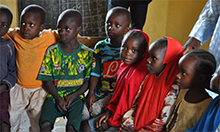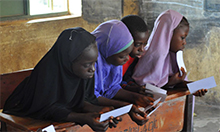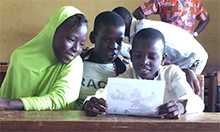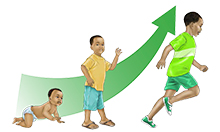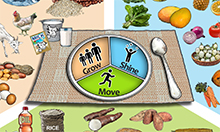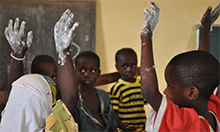A Training Guide for Community-Based Organizations
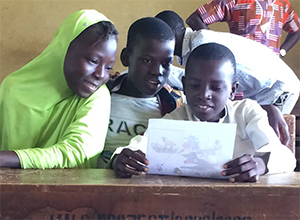
Much is known about the nutrition and hygiene needs of children during the first 1,000 days from pregnancy until a child reaches his or her second birthday. Since 2012, the SPRING project has worked with the Nigeria Federal Ministry of Health to adapt the United Nations Children’s Fund (UNICEF)-supported infant and young child feeding training package to the Nigerian context. That training package, available in six Nigerian languages, has been widely disseminated and has been used for training in 16 Nigerian states and more than 100 local government authorities with SPRING support through September 2016.
The Nutrition and Hygiene for Orphans and Vulnerable Children in Nigeria training package was designed to provide basic technical knowledge on nutrition and hygiene needs beyond the first 1,000 days—for children who are 2–17 years old, particularly orphans and vulnerable children (OVC), and more specifically those living with and affected by HIV and AIDS. SPRING’s partners (STEER, SMILE, WEWE, HIFAS, and ARFH) asked the project to create this training package for their use with their local civil society organizations (CSOs) who work with OVC. The materials can be used by any organization that works with children 2–17 years old and wants to provide them with information about nutrition and hygiene.
This training package should be used to train adults who work with children ages 2–17. The activities in the training are for the children to do. In the youngest age bracket, caregivers may also be trained in these activities. The OVC organizations identified community health workers, kids’ club leaders, and other community workers as the target audience for this training, since they are the adults who provide support and information to mothers, fathers, and children from early childhood through adolescence, as well as to other community members, about nutrition and feeding young children and adolescents.
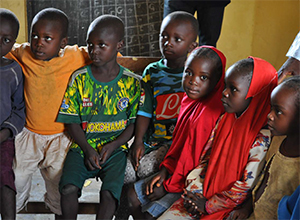
The training package is organized into five main sections:
- The facilitator’s guide provides a background to the development of the training package, as well as the summary of the training materials and handouts that will be provided for the training.
- The first training section of the training package is Module 1, which targets the adults to be trained to lead sessions and activities with children. This module introduces the concepts of behavior change communication and communication with children and basic concepts of nutrition. This module also contains a pre-and post-test questionnaire to be used to assess baseline knowledge on the subjects to be trained and the change in knowledge by the end of the training. This pre-and post-test questionnaire is to be administered when training adult facilitators only and not with children in the communities. This module will be the basis for training all facilitators.
The remaining three modules are organized according to the age of the children to be trained:
- The “early years” module (Module 2) targets children 2–5 years old and their caregivers.
- The “middle years” module (Module 3) targets children 6–11 years old.
- The “adolescent” module (Module 4) targets children 12–17 years old.
In addition, the training package includes a set of job aids that includes illustrations and handouts used in the various modules.
